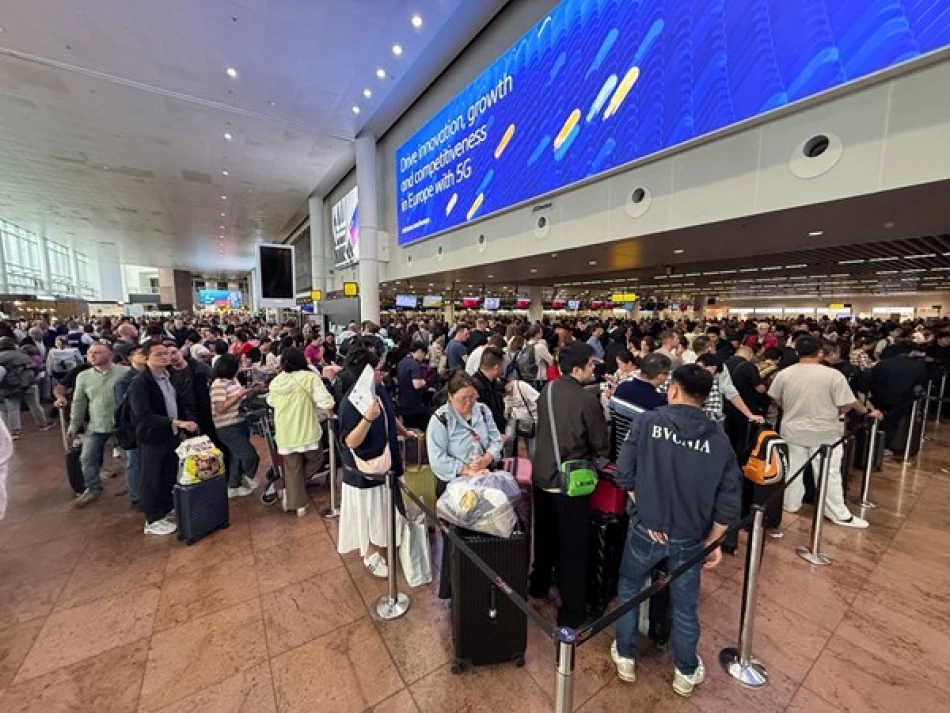
Major European Airports Disrupted by Cyber Attack
Major European Airports Hit by Software Glitch as Collins Aerospace System Fails
A technical malfunction in Collins Aerospace's passenger management software disrupted operations at several major European airports on Saturday, including Brussels, London Heathrow, and Berlin. The outage affected electronic check-in systems and baggage handling, highlighting the aviation industry's growing vulnerability to digital infrastructure failures.
Scope of the Disruption
Collins Aerospace confirmed to AFP that its MUSE software system experienced an electronic failure across multiple airports. The company stated that the impact was limited to passenger electronic check-in processes and baggage handling systems, though this represents a critical bottleneck for airport operations.
The affected airports serve millions of passengers annually, with Heathrow alone handling over 80 million travelers per year. Even temporary disruptions at these hubs can create cascading delays across European air traffic networks.
Aviation's Digital Dependency Problem
Industry-Wide Vulnerability
This incident underscores the aviation sector's increasing reliance on centralized software systems. Collins Aerospace, a subsidiary of Raytheon Technologies, provides critical infrastructure to airports worldwide, making any system failure potentially far-reaching.
The aviation industry has experienced several high-profile technology failures in recent years. In 2022, the FAA's NOTAM system failure grounded all U.S. flights for hours, while Southwest Airlines' operational meltdown during the 2022 holiday season was partly attributed to outdated scheduling software.
The Cost of Connectivity
Modern airports operate as complex digital ecosystems where passenger processing, baggage tracking, and flight coordination depend on seamless software integration. When core systems like MUSE fail, airports often must revert to manual processes, creating significant bottlenecks.
Industry analysts estimate that major airport disruptions can cost airlines and airports millions of dollars per hour in lost revenue, compensation payments, and operational expenses.
Implications for Stakeholders
Passenger Impact
Travelers at affected airports likely faced longer wait times and potential delays as staff processed check-ins manually. The timing on a Saturday, typically a busy travel day, could have amplified the disruption's impact on weekend leisure travelers.
Industry Response
This outage will likely renew discussions about backup systems and redundancy planning in aviation technology. European aviation authorities have been pushing for improved digital resilience following previous disruptions, and this incident may accelerate regulatory requirements for failover systems.
For Collins Aerospace, the failure represents a significant operational challenge and potential reputational risk. The company's ability to quickly resolve the issue and prevent future occurrences will be closely watched by existing and potential airport clients.
Looking Forward
As airports continue digitizing operations to improve efficiency and passenger experience, the industry must balance innovation with reliability. The Collins Aerospace outage serves as a reminder that even sophisticated systems require robust backup protocols and rapid response capabilities to minimize disruption in an increasingly connected aviation ecosystem.
Most Viewed News

 Layla Al Mansoori
Layla Al Mansoori






